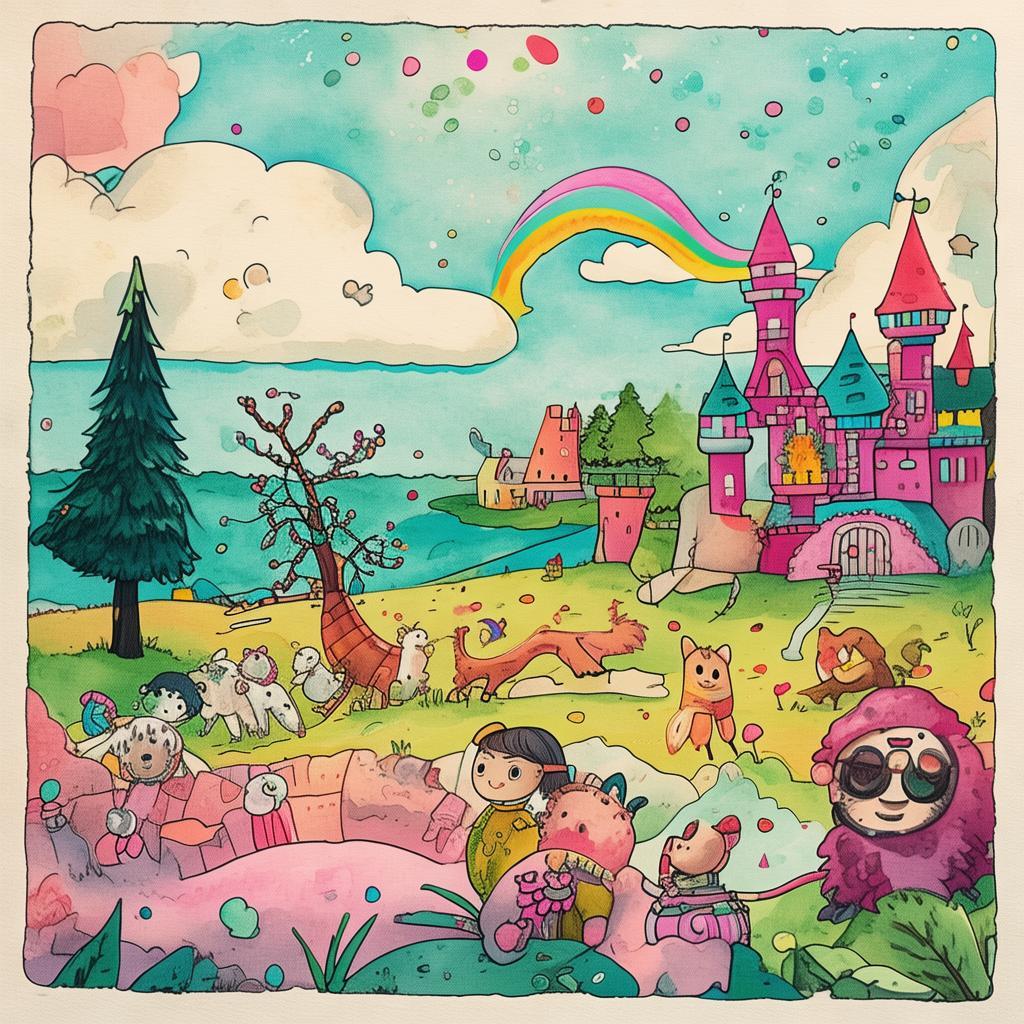The Last Garden
In the desolate wasteland of what used to be the bustling city of New Haven, a young girl named Lily wandered through the remnants of what had once been lush gardens and parks. The world had changed irrevocably; the sky was gray, the air was thick with dust, and the ground was barren, save for the odd, twisted tree or a heap of broken concrete.
Lily's father had been an artist, a painter whose works had brought life and color to the walls of their once vibrant home. When the world fell apart, he had clung to his art, painting visions of the world he longed for—a world full of life and beauty. He had passed away before Lily could fully understand the magnitude of his loss, but his legacy lived on in the walls of their home and in the small garden he had nurtured with love.
One day, Lily found herself alone in the garden, the once vibrant flowers now brown and wilted, the soil dry and cracked. She sat on the bench that her father had made for her and looked around at the ruins. "I can't let this be over," she whispered to herself. "We need to save the garden."
Lily's determination was fierce. She knew the garden was more than just a patch of earth; it was a symbol of life, of hope. She began to plant seeds, hoping against hope that they might grow. She collected rainwater in an old bucket, watered the plants, and talked to them as if they were her friends. The garden, with its stubborn resilience, began to show signs of life.
The other children of the wasteland noticed the garden. They had seen Lily working, her hands covered in dirt, her eyes gleaming with a quiet determination. They began to help her. They brought her extra seeds, old cans to collect rainwater, and stories of their own. The garden grew, and with it, a sense of community.
One day, a stranger approached the garden. He was an old man with a walking stick and eyes that seemed to carry the weight of the world. "This is beautiful," he said, his voice thick with emotion. "What have you done here?"
Lily stepped forward. "We're trying to keep this place alive. To remember what the world was like before it all fell apart."

The old man smiled, a rare thing in this desolate world. "You are doing something very important, my child. You're planting seeds of hope."
Word of the garden spread, and soon, more and more people began to visit. They shared stories, traded what they had, and worked together to maintain the garden. It became a place of solace, a place where hope could be found in the midst of despair.
One night, as the moon hung low and the stars began to twinkle, Lily stood in the garden and whispered, "Thank you, Dad. This is for you."
The next morning, as the sun began to rise, Lily watched as the first of the flowers bloomed. It was a small thing, perhaps, but it was a sign that life could still thrive even in the darkest of times.
The garden became a beacon of hope, a place where the children of the wasteland could gather, share, and dream of a better future. Lily had not only saved her father's legacy; she had saved her world.
In the years that followed, the garden grew, becoming a symbol of resilience and the power of community. And Lily, with her dirt-stained hands and eyes filled with dreams, remained its guardian, a little girl who had shown that even in the darkest of times, there was always a way to plant a seed of hope.
✨ Original Statement ✨
All articles published on this website (including but not limited to text, images, videos, and other content) are original or authorized for reposting and are protected by relevant laws. Without the explicit written permission of this website, no individual or organization may copy, modify, repost, or use the content for commercial purposes.
If you need to quote or cooperate, please contact this site for authorization. We reserve the right to pursue legal responsibility for any unauthorized use.
Hereby declared.









